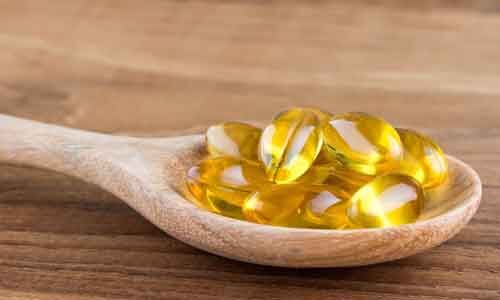- Home
- Medical news & Guidelines
- Anesthesiology
- Cardiology and CTVS
- Critical Care
- Dentistry
- Dermatology
- Diabetes and Endocrinology
- ENT
- Gastroenterology
- Medicine
- Nephrology
- Neurology
- Obstretics-Gynaecology
- Oncology
- Ophthalmology
- Orthopaedics
- Pediatrics-Neonatology
- Psychiatry
- Pulmonology
- Radiology
- Surgery
- Urology
- Laboratory Medicine
- Diet
- Nursing
- Paramedical
- Physiotherapy
- Health news
- Fact Check
- Bone Health Fact Check
- Brain Health Fact Check
- Cancer Related Fact Check
- Child Care Fact Check
- Dental and oral health fact check
- Diabetes and metabolic health fact check
- Diet and Nutrition Fact Check
- Eye and ENT Care Fact Check
- Fitness fact check
- Gut health fact check
- Heart health fact check
- Kidney health fact check
- Medical education fact check
- Men's health fact check
- Respiratory fact check
- Skin and hair care fact check
- Vaccine and Immunization fact check
- Women's health fact check
- AYUSH
- State News
- Andaman and Nicobar Islands
- Andhra Pradesh
- Arunachal Pradesh
- Assam
- Bihar
- Chandigarh
- Chattisgarh
- Dadra and Nagar Haveli
- Daman and Diu
- Delhi
- Goa
- Gujarat
- Haryana
- Himachal Pradesh
- Jammu & Kashmir
- Jharkhand
- Karnataka
- Kerala
- Ladakh
- Lakshadweep
- Madhya Pradesh
- Maharashtra
- Manipur
- Meghalaya
- Mizoram
- Nagaland
- Odisha
- Puducherry
- Punjab
- Rajasthan
- Sikkim
- Tamil Nadu
- Telangana
- Tripura
- Uttar Pradesh
- Uttrakhand
- West Bengal
- Medical Education
- Industry
Fish oil supplements don't raise bad cholesterol

The Fatty Acid Research Institute (FARI) has published a new research paper in conjunction with The Cooper Institute on the omega-3s EPA and DHA in fish oil and low density lipoprotein cholesterol (LDL-C).
Omega-3 fatty acids have a long history of being "heart healthy," and are well-known for lowering blood levels of triglycerides (but typically not cholesterol). Recent questions have been raised, however, about one of the two "fish oil" omega-3 fatty acids -- DHA (docosahexaenoic acid) -- and the possibility that it might actually raise levels of LDL-C, the "bad" cholesterol.
There is good evidence that people with very high serum triglyceride levels (>500 mg/dL) who are treated with high doses of omega-3, i.e., 4 g/day of EPA (eicosapentaenoic acid) and DHA commonly see a rise in LDL-C, whether this occurs in the "real world" with generally healthy people taking fish oil supplements for cardioprotection is not clear.
A recent study from the Cooper Center Longitudinal Study (CCLS) and FARI sheds new light on this question.
The investigators utilized data from 9253 healthy men and women who had at least two preventive medical examinations at Cooper Clinic in Dallas over a 10-year period. These examinations routinely included both blood cholesterol testing and measurement of the Omega-3 Index (i.e., red blood cell (RBC) EPA+DHA levels from OmegaQuant Analytics). Questions about current use of fish oil supplements was also collected.
With this information, the researchers then asked 2 questions: 1) did people who started taking fish oil supplements between visits experience a rise in LDL-C levels, and 2) did LDL-C levels rise in people whose RBC DHA levels increased between visits?
It turns out that the answer to both of these questions was "no." In fact, a 1-unit rise in RBC DHA levels was associated with a small (1-2 mg/dL) but statistically significant decrease in LDL-C. And this analysis took into account concurrent changes in background use of cholesterol-lowering drugs like statins. This small decrease in LDL-C is not a clinically-relevant, but this study shows that fish oil supplement use in the general population does not adversely affect LDL-C.
Dr. William Harris, President of FARI and co-inventor of the Omega-3 Index, was the lead author on this study. In his view, "these new findings from the CCLS clearly show that people who take fish oil supplements need not worry about adversely affecting their cholesterol levels as some have proposed."
He also noted that these results also harmonize well with the conclusions of a recent American Heart Association Advisory on the use of omega-3 fatty acids in the treatment of high triglyceride levels. This major review found there is "no strong evidence that DHA-containing prescription omega-3 fatty acid agents used alone or in combination with statins raise LDL-C in patients with high triglyceride levels.1"
Commenting on this paper, Dr. Carl Lavie, a cardiologist and Medical Director of the Cardiac Rehabilitation and Prevention Program at the John Ochsner Heart and Vascular Institute in New Orleans, LA, said, "This large study from the Cooper Clinic indicates that RBC DHA levels are not associated with higher LDL-cholesterol levels (actually with lower), and adding omega-3 supplements was also not associated with increases in LDL-C."
Dr. Lavie and colleagues recently published data from 40 studies in over 135,000 participants in the Mayo Clinic Proceedings indicating that the combined EPA and DHA dose predicted reductions in major cardiovascular outcomes2. "These new data from the Cooper Institute add to the cumulative evidence of the safety and efficacy of omega-3 from dietary sources and supplements, including the combination of EPA and DHA," he said.
https://www.lipidjournal.com/article/S1933-2874(20)30337-8/fulltext
Hina Zahid Joined Medical Dialogue in 2017 with a passion to work as a Reporter. She coordinates with various national and international journals and association and covers all the stories related to Medical guidelines, Medical Journals, rare medical surgeries as well as all the updates in the medical field. Email: editorial@medicaldialogues.in. Contact no. 011-43720751
Dr Kamal Kant Kohli-MBBS, DTCD- a chest specialist with more than 30 years of practice and a flair for writing clinical articles, Dr Kamal Kant Kohli joined Medical Dialogues as a Chief Editor of Medical News. Besides writing articles, as an editor, he proofreads and verifies all the medical content published on Medical Dialogues including those coming from journals, studies,medical conferences,guidelines etc. Email: drkohli@medicaldialogues.in. Contact no. 011-43720751


